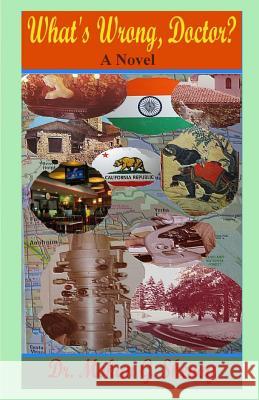What's Wrong, Doctor? » książka
What's Wrong, Doctor?
ISBN-13: 9781500229283 / Angielski / Miękka / 2014 / 214 str.
Before Independence, England was the destination for an Indian doctor who wanted to study medicine beyond MBBS degree. England was treating India as a part of United Kingdom. Most of the privileges that the citizens of England enjoyed were also conferred on the Indians. For a doctor graduated from an Indian university, it was easy to get a job as a houseman in a hospital in the United Kingdom. Dinker's medical degree belonged to the 21st century. Dinker got it approximately 5 decades after India became independent. Soon after Independence, medical education in India was reformed and redesigned to discourage Indian doctors from going for higher studies to England. By January 1950 when India became a Republic the dominion status of India was repealed and the government of the United Kingdom began to treat the Indian medical graduates as foreign medical graduates equal to those from any other country. Very few Indian medical graduates were admitted to England as immigrants and just a few more were admitted as students. Dinker never aspired to go to England for either a job or for further training. India treated every doctor who migrated to settle abroad as a great loss of highly skilled manpower to India. To show solidarity with the policy of Indian Government that permitting Indian doctors to settle abroad would be tantamount to encouraging brain drain, the US State department changed the rules and began to issue a special kind of visa known as the Exchange Visitor visa. Immigrant visas were not issued. By 1966, the United States began to admit Indian doctors as either immigrants or as trainee doctors. The story is an attempt to place before the readers how doctors seek the best town and country to practice medicine. The modern world provides doctors simplicity of travel and scopes for additional training in their specialties in different parts of the world. Some doctors return to their country but others settle down in the country of migration. A doctor that was educated in India and then traveled to the United States to find a lucrative practice would have many hurdles to cross. His personal integrity and sincerity get tested as he finally finds his abode to settle down and raise a family. The story resembles the biography of any doctor from India that migrated to USA. It is not my autobiography but the events and narrations are based on my personal experiences. Otherwise it could not be a genuine story it claims to be. But the story is more a fiction than a life of any particular doctor. Not that every doctor from India that migrates to the USA would be like Dinker, Nalini or professor K who are the main characters in the story. I have adopted a different style to narrate the story of professor K; a style in which the professor describes his experiences, trials and adventures in his letters to his friend doctor Dinker. This style helped me to put two stories in one. Some of the events are expanded to include my own personal thoughts and opinions, which could be similar to the challenges many doctors go through in their lives. I have no intention to pretend that every detail in this story is correct or authentic. There could be a few geographical errors or a few factual errors. Therefore this novel has only a fictional value. This book is a self-published book which fact must not make it any inferior to books published by so-called Publishing Firms. A common complaint against self-published books is that they are not edited properly. I do not think that an author like me would be unable to edit his book by himself. He could do the right kind of editing because he knows how it could lose its basic plot by editing to conform the general editing practices. I am grateful to many people who helped me in bringing this book out, but particularly to CreateSpace who have helped me immensely in bringing out this book. I hope the novel is enjoyable and evokes interest in doctors of all places and nationalities.
Zawartość książki może nie spełniać oczekiwań – reklamacje nie obejmują treści, która mogła nie być redakcyjnie ani merytorycznie opracowana.











